Reviews
Joshua Oppenheimer
Denmark / Norway / UK / Sweden / Finland, 2012
Credits
Review by Victoria Large
Posted on 22 May 2013
Source digital projection
Categories The 2013 Independent Film Festival Boston
I’m not sure that I saw anyone walk out during the packed screening of The Act of Killing at IFFB this year. And while no one applauded at the end of the film, that’s not unheard of after a difficult or downbeat picture has played. (It happened last year with Trishna and even this year with Berberian Sound Studio.) What was really unusual about the audience’s response was the speed with which so many people left the theater. I spoke to some (deeply shaken) audience members after the screening, and they said they saw some coats hastily left behind on seats after the lights went up. People were eager to put physical distance between themselves and the film, and return to the relative calm of the April evening outside. My own notes from the screening include the question, “Why did I think I could handle this?”
The Act of Killing is a film about genocide. And it is so surreal, and so disconcerting that one actually searches for reassurance that it’s okay to watch, okay to have watched. Deeply respected documentarians Errol Morris and Werner Herzog are credited as executive producers, one notes. The film has played established festivals. It’s been authorized. And yet its audience was desperate to exit the theater, and with good reason. This is a film about men who did unspeakable things, and who claim to be at peace with what they’ve done, though we aren’t sure we believe them. Perhaps it is fitting, then, that the film itself is so difficult to grapple with. Or maybe even saying that is an oversimplification: an attempt, in retrospect, to tidy things up with words.
The project that The Act of Killing documents is jarring in itself: men who led Indonesian death squads in the sixties, when over a million suspected “Communists,” including farmers and intellectuals, were murdered, agree to recreate what they did, acting out their mass killings for the camera (keep in mind that these men have not been prosecuted for any crimes, as the killings were government-sanctioned). It turns out the men are enthusiastic about telling their story from their perspective, and - troublingly - they are big fans of American cinema, especially the gangster films. They take to the project with relish. Some of the scenes that they stage are absurd, if too perverse to be termed funny, including a musical number set to the tune of “Born Free.” It makes for profoundly uncomfortable viewing, and one wonders if gaining insight into these men’s perceptions of their crimes is worth giving them the power to shape their stories on film in the first place.
But the experience of recreating genocide does begin to have a sobering impact on the men. One of the men, Anwar Congo, is chillingly lighthearted about his past at the beginning of the documentary, walking the crew through his preferred methods of torture and murder at the scene of many of his past crimes. Yet he eventually confesses having difficulty sleeping, and the task of sitting in for one of his victims, and then replaying the footage, actually brings him to tears. One of the documentary’s final scenes finds Congo returning to the murder site that he that he had previously appeared to have no trouble visiting, and this time he is clearly struggling with his past, physically retching as he remembers. Another scene finds a group of men reenacting the destruction of a village, and the trauma becomes all too real (a woman really faints, children cannot stop crying after the shout of “Cut!”). Some of the men admit that they didn’t feel good about the scene, or how it made them come across. By staging fictionalized versions of these real atrocities, the men are forced to confront their own violence in a way that they have not before, and the results are potent but harrowing.
This is no ordinary film, and it raises serious questions about whether audiences should be spending time getting to know mass killers (it’s impossible to try to process what these men have done when watching them dance or sit with their grandchildren), and whether those killers should be allowed to “simulate” the burning of a village by essentially terrifying real women and children. But The Act of Killing also stands as a testament to the power of art to build empathy, and it does so in a way that is not in the least didactic. It stretches the boundaries of what a documentary can be and raises provocative questions about what they should be. It is a film that feels truly dangerous. Indeed, many of the crewmembers, including one of the film’s co-directors, are listed anonymously in the film’s credits. Co-directors Christine Cynn, Joshua Oppenheimer, and their anonymous partner have created something unique and very powerful with The Act of Killing. Those with a serious interest in nonfiction filmmaking will rightly feel compelled to see it, and they will doubtlessly be riveted. But they may also find themselves exiting quickly, eager to escape the darkness in the theater.
More The 2013 Independent Film Festival Boston
-
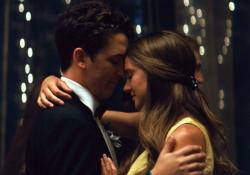
The Spectacular Now
2013 -
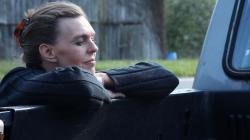
Remote Area Medical
2013 -
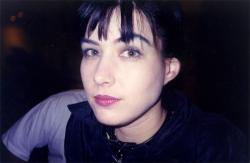
The Punk Singer
2013 -
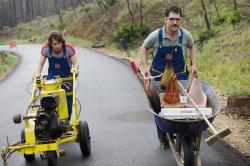
Prince Avalance
2013 -
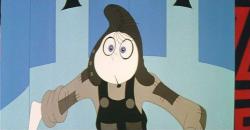
Persistence of Vision
2012 -

Much Ado About Nothing
2012 -

Rewind This!
2013 -
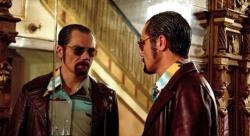
The Iceman
2012 -
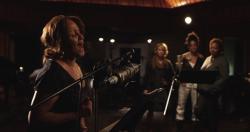
Twenty Feet From Stardom
2013 -
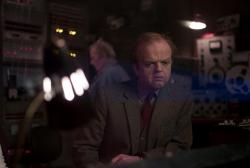
Berberian Sound Studio
2012 -
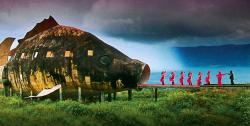
The Act of Killing
2012 -

In a World…
2013 -
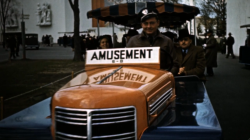
World Fair
2013
We don’t do comments anymore, but you may contact us here or find us on Twitter or Facebook.



